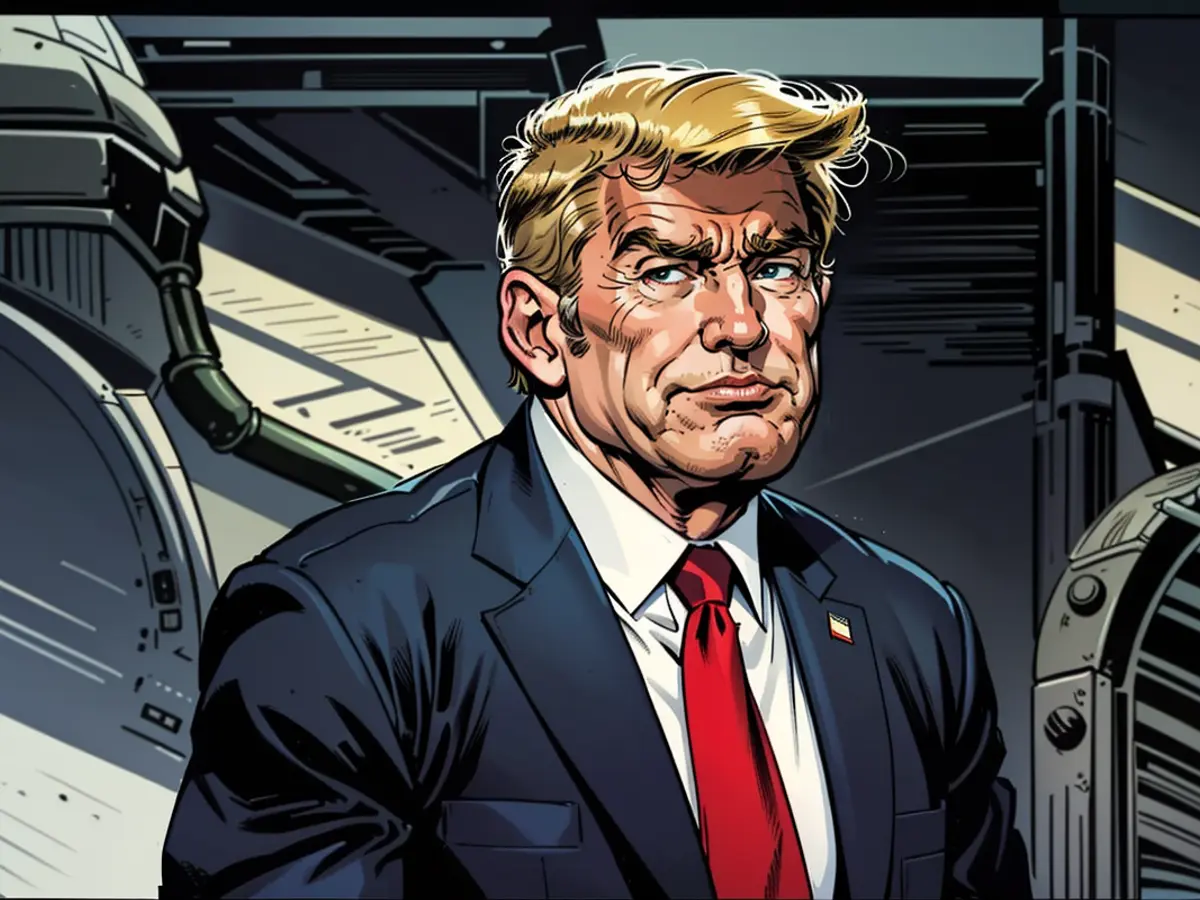Trump achieves important partial victory before Supreme Court
"Is Trump Protected from Prosecution? The US Supreme Court Answers with a 'Yes and No' and Sends the Case Back to a Lower Court. The Republican seems satisfied with the decision.
Donald Trump scored a significant victory at the US Supreme Court in Washington D.C. In the question of whether former presidents are shielded from prosecution, the court decided with a 6 to 3 vote that at least official government actions are absolutely immune, not other actions. The decision on how this decision applies to the Trump case was referred to a lower court. This court must decide which charges in the indictment are official actions and therefore should not be considered in this case.
"The President enjoys no immunity for his unofficial actions, and not everything the President does is official. The President is not above the law," the decision reads. It is now clear which parts of the charges against the Republican in Washington still stand. In the criminal case against Trump in Georgia, a proceeding is ongoing regarding allegations of election manipulation.
"A big win for our Constitution and democracy"
The ruling on Trump's immunity is one of the last judgments spoken by the justices of the Supreme Court before the summer recess. This late timing and the decision of the judges means that Trump is unlikely to face the trial in this proceeding before November. Trump declared in his first reaction on his Truth Social platform that the ruling was "a big win for our Constitution and democracy".
Trump and his lawyers aimed to have the indictment in Washington dismissed. They referred to Trump's immunity during his tenure as President. They argued that Trump could not be charged for actions that were part of his Presidential duties. They had already failed with this argument before an appeals court in the capital. The presiding judge in the case had also previously rejected this argument. Trump's lawyers filed an appeal, which is why the case ended up before the Supreme Court.
The Supreme Court, which has shifted significantly to the right under Trump due to several appointments, took a stance on how great the power of US Presidents is and where the limits of the rule of law lie. The Constitution does not explicitly grant Presidents immunity, nor during their tenure. However, the Justice Department has traditionally held the view that Presidents, at least during their time in the White House, cannot be indicted. The ruling on the legal basis for actions by former Presidents will also have immense significance for future Presidents and is already being hailed as historic."
"This case has enormous implications for the Presidency"
At a hearing before the Supreme Court at the end of April, the justices listened to arguments from Trump's attorney and the opposing side for roughly three hours. "This case has immense implications for the presidency, for the future of the presidency, for the future of the country," remarked conservative judge Brett Kavanaugh. Some judges hinted in their questions that they would not support full immunity but certain actions should be shielded from prosecution.
Meanwhile, during the campaign, several criminal proceedings against Trump are ongoing. In the US state of Georgia, Trump is charged with attempted election fraud. In Florida, he is accused of illegally storing classified documents. And in New York, Trump was convicted in late May for unlawful hush money payments to a porn star. The sentencing is scheduled for mid-July. Trump has announced an appeal against the judgment.
Trump maintains his innocence in all proceedings and labels the criminal investigations against him as attempts by his political opponents to sabotage him. So far, Trump's criminal investigations have not affected him negatively in polls. The Supreme Court's judgment could also impact the election fraud proceedings on a state level in Georgia and the classified documents case - the extent of which will only become clear in the coming weeks.
The Supreme Court's decision to grant partial immunity to former presidents in official actions could potentially dismiss certain charges against Donald Trump in Washington. This ruling, however, leaves the election manipulation case in Georgia ongoing.
The Supreme Court's decision on Donald Trump's immunity has significant implications for future Presidents, as it clarifies the limits of their power and the rule of law. This case has also sparked debate about the extent of Presidential immunity in various criminal proceedings against Trump.








